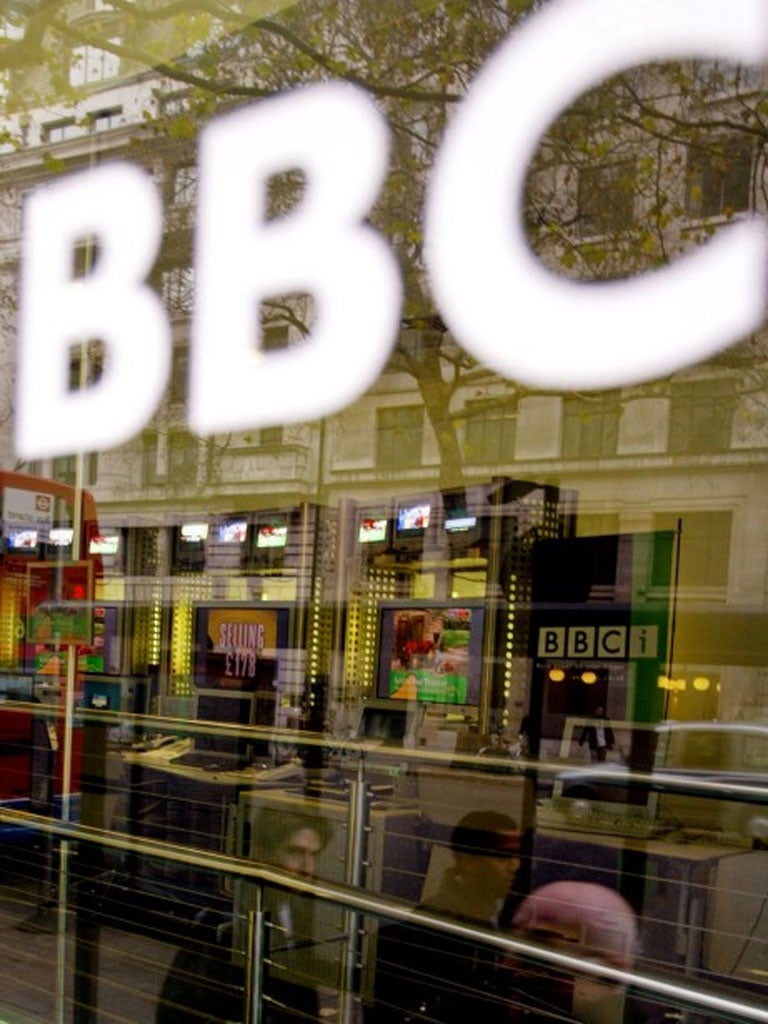
Your support helps us to tell the story
From reproductive rights to climate change to Big Tech, The Independent is on the ground when the story is developing. Whether it's investigating the financials of Elon Musk's pro-Trump PAC or producing our latest documentary, 'The A Word', which shines a light on the American women fighting for reproductive rights, we know how important it is to parse out the facts from the messaging.
At such a critical moment in US history, we need reporters on the ground. Your donation allows us to keep sending journalists to speak to both sides of the story.
The Independent is trusted by Americans across the entire political spectrum. And unlike many other quality news outlets, we choose not to lock Americans out of our reporting and analysis with paywalls. We believe quality journalism should be available to everyone, paid for by those who can afford it.
Your support makes all the difference.Bush House has been an iconic feature of the BBC since 1925 when it was opened by Lord Balfour.
But at the end of this month staff will begin moving into new facilities, in a step change that will see the closure of the historic building. Made from Portland stone it was once described as the "most expensive building in the world".
Bush House survived a 1944 doodlebug explosion, which took the arm off one of the entrance statues dedicated to "the Friendship of English Speaking Peoples". But when the BBC's lease runs out at the end of the year, the building will be refurbished by its Japanese owners, possibly as a hotel.
The World Service, which celebrates its Eightieth anniversary in December, will enjoy a closer working relationship with other parts of BBC News when it is incorporated into the new 12-storey multimedia Broadcasting House complex at Portland Place in London. The public will be able to see close up the work of news presenters like Emily Maitliss, below, along with thousands of other BBC journalists, as the corporation puts its newsroom behind glass.
The newsroom will be a "fantastic melting pot", said Helen Boaden, the director of BBC News. "Simply being in the same building should encourage our ambition. For example, the Today programme will have language service colleagues from the World Service in the same building. When there's a breaking foreign story, those World Service colleagues will be able to give the context for the Radio 4 audience."
The newsroom, which will house some 6,000 BBC staff, will be housed in a basement three floors below ground level and will have five acoustically separate television studios. A large atrium allows the space to be overlooked from the upper storeys of the building. The BBC hopes the initiative will provide a greater sense of interactivity with the public.
The World Service is at an important juncture in its history, having recently been the subject of heated debate over its funding. The service was earmarked for a 16 per cent cut in its £270m budget as part of last year's Comprehensive Spending Review, but after an outcry, Foreign Secretary William Hague agreed to find additional funding, particularly to support the Arabic Service.
The World Service is hoping that its presence in a "state-of-the-art newsroom" will enable it to grow its audiences, said Peter Horrocks, its director. "Despite the dramatic growth in media, access to independent and high-quality news remains scarce. In many parts of the world, impartial and trusted news is almost becoming an endangered species," he said. "A tight financial climate does not mean we need to shrink our ambition - we want to reach more people, deliver greater impact and remain the most trusted broadcaster in the world."
The service was originally based on the site of the former Broadcasting House, but the explosion of a German landmine in 1940 caused a fire which prompted the evacuation of the European services.
The following year the World Service moved into Bush House, which is situated between The Strand and Aldwych in London, close to what was then the heart of the British newspaper industry in Fleet Street. The BBC paid a weekly rent of £30.
The World Service, which famously employed George Orwell – he worked as a Talks Producer for the Eastern Service between 1941 and 1943 – opened with words by Rudyard Kipling read from Sandringham by King George V: "I speak now from my home and from my heart to you all."
Join our commenting forum
Join thought-provoking conversations, follow other Independent readers and see their replies
Comments